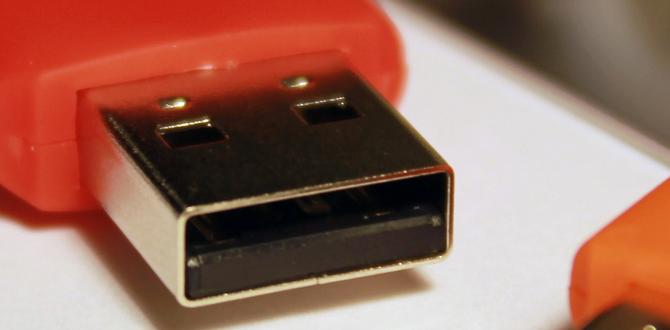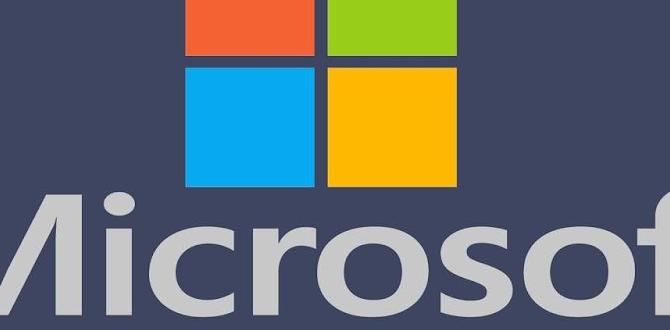Have you ever wondered why your computer feels slow? Maybe your files are cluttered and messy. Just like a messy room, your computer needs a good cleanup, too! A checklist to improve your disk cleanup can make this task easier and quicker.
Imagine trying to find your favorite toy in a pile of other toys. It takes time, right? Your computer faces the same problem with files. Organizing it can help speed up your work or play. A simple checklist can help you remember each step for cleaning your disk.
Did you know that regular cleanups can help your computer run like new? It’s true! Following a clear plan makes it less daunting. You’ll soon find that your slow computer will be much faster. Get ready to explore our checklist to improve your disk cleanup and discover how easy it can be!
Checklist To Improve Your Disk Cleanup Efficiency

Want to make your computer faster? A disk cleanup checklist can help! Start by deleting old files and programs you no longer use. Don’t forget to empty the recycle bin! Using disk cleanup tools keeps your system healthy. Regular checks can reveal hidden junk. Did you know that clutter can slow down your device? Cleaning up not only saves space but boosts performance. Try this checklist today to see the difference!
Understanding Disk Cleanup

Definition and importance of disk cleanup. How disk cleanup enhances system performance.
Every computer stores a lot of files over time. Some of these files take up space without being helpful. Disk cleanup removes unwanted files. This is important because it keeps your computer running smoothly. Regular disk cleanup can make your system faster and improve performance. A happy computer means less waiting time for you!
- Frees up space
- Improves speed
- Reduces errors
Why is disk cleanup necessary?
Disk cleanup is crucial because it enhances your computer’s speed. It also helps prevent crashes and freezes.
Preparing for Disk Cleanup

Assessing disk usage and identifying unnecessary files. Backing up essential data before cleanup.
Before starting your disk cleanup, it’s smart to know what is taking up space. Check your storage and find unneeded files that can go. Back up your important data to keep it safe. This way, you don’t lose anything valuable. Here’s how to prepare:
- Assess total disk usage.
- Identify large files or folders.
- Backup essential data to an external drive or cloud.
Being ready makes cleanup easier and faster!
How do you assess disk usage?
Check your computer’s settings for storage details. You can view which programs and files use the most space. Delete what you don’t need.
Manual Disk Cleanup Techniques

Stepbystep guide for manually deleting temporary files. Organizing large files and folders effectively.
Want to give your computer a fresh start? Let’s dive into easy steps for manual disk cleanup! First, find those pesky temporary files. You can do this by searching for “%temp%” in your file explorer. Then, just hit delete like you’re swatting flies! Next, tackle those big files – the ones that snatch up all that space. Use a folder size checker to spot the culprits. Arrange them in a neat way, maybe even with a “No Junk Zone” label. This way, you’ll keep what matters and toss what doesn’t!
| Step | Action |
|---|---|
| 1 | Open file explorer and type “%temp%” |
| 2 | Select and delete temporary files |
| 3 | Use a folder size checker |
| 4 | Organize and label large files |
And remember, a tidy disk means a happy computer. Happy cleaning!
Regular Maintenance Schedule

Establishing a routine for disk cleanup. Importance of scheduling regular system maintenance.
Keeping your computer clean is like brushing your teeth; you don’t want to skip it! Schedule regular disk cleanup to prevent a buildup of junk. Treat it like a dentist appointment for your computer! Set a reminder weekly or monthly. The key is consistency. This will help your system run smoother and faster. Plus, who wants a slow computer? Here’s a simple checklist to follow:
| Schedule | Task |
|---|---|
| Weekly | Delete temporary files |
| Monthly | Empty the recycle bin |
| Every 3 Months | Uninstall unused programs |
By sticking to this routine, you keep your disk happy, and it may just thank you by running like the wind! So let’s keep things tidy!
Advanced Disk Cleanup Strategies
Using commandline tools for expert users. Leveraging disk analysis software for deeper insights.
For those who love a tech challenge, command-line tools can be your best friends! They are not just for coding pros; they can help anyone clean up their disks quickly. It’s like using a magic wand to tidy up your digital mess!
Another great strategy is using disk analysis software. This special tool gives you deep insights into what’s taking up space on your drive. Imagine uncovering the hidden treasures (or junk!) cluttering your disk. With these tools, you can track down the bad guys slowing your computer down and send them packing!
| Tool | Purpose |
|---|---|
| Command-Line Tools | Quick disk cleanup |
| Disk Analysis Software | Detailed insights on disk usage |
So, roll up your sleeves and start tidying today! Who knew cleaning could feel like an adventure?
Common Pitfalls to Avoid
Mistakes people make during disk cleanup. How to prevent data loss while cleaning up disks.
Cleaning up a disk can be tricky. Many people make mistakes that can lead to data loss. Here are some common pitfalls:
- Not backing up files before cleaning.
- Deleting important system files by mistake.
- Ignoring hidden files that take up space.
To avoid these issues, always back up your data. This way, you won’t lose anything important. Be careful about what you delete, and check hidden folders. A thoughtful approach makes disk cleanup easier and safer.
How can I safely clean up my disk?
Start by making a backup of your important files. Then, carefully review what you plan to delete. Avoid removing anything you don’t fully understand.
Additional Tips for Better Disk Management
Recommendations for optimizing disk space utilization. Importance of awareness regarding file types and storage methods.
To keep your computer running well, use these tips for managing disk space. First, know what file types you have. Some files take up more space than others. Keep large files only if you need them. Also, think about storage methods. Cloud storage can help. It saves space on your computer. Regularly delete files you no longer need. This simple checklist can make your disk cleanup easier.
- Understand the size of your files.
- Use cloud services for extra storage.
- Remove unnecessary files regularly.
Why is it important to be aware of file types and storage methods?
Knowing file types helps you manage space better. Some files need more storage. By choosing the right storage method, you can save important space on your device.
Conclusion
To improve your disk cleanup, start by regularly checking your files. Use tools to delete unwanted junk, empty the recycle bin, and organize your folders. We can schedule cleanups to make it easier. Following this checklist keeps your computer fast and organized. So, take action today! For more tips, explore articles on digital organization.
FAQs
Sure! Here Are Five Questions Related To Improving Your Disk Cleanup Process:
Sure! To improve your disk cleanup process, first, check what files you don’t need anymore and delete them. Next, make sure to empty your recycle bin so those files are gone for good. You can also use tools on your computer that help find and clean old files. Finally, remember to do this cleanup regularly, like once a month! This helps keep your computer running smoothly.
Sure! Please provide the question you want me to answer.
What Are The Most Effective Methods To Identify And Remove Large Files And Duplicates On My Disk?
To find large files on your disk, you can use a file manager tool. Look for folder sizes and sort them by size. For duplicates, you can use a special app designed to spot the same files. Once you find them, you can delete what you don’t need. This will help free up space on your computer!
How Often Should I Perform Disk Cleanup To Maintain Optimal Performance On My Computer?
You should do a disk cleanup once a month. This helps keep your computer running fast and smooth. You can do it more often if your computer feels slow. Just remember to check for extra files we don’t need! Regular cleaning is a good habit for keeping your computer happy.
What Tools Or Software Can Assist Me In Automating The Disk Cleanup Process?
You can use tools like CCleaner or Disk Cleanup on Windows. They help clear out extra files. These programs can delete old files automatically. You just need to set them up once. Then, they will clean up your computer for you!
Are There Specific File Types Or Folders That I Should Prioritize When Cleaning Up My Disk Space?
Yes, there are some file types and folders you should focus on. Start with big files like videos and pictures. They take up lots of space. Also, check your downloads folder. It often has things we don’t need anymore. Lastly, look for old apps you don’t use. They can be removed to free up space.
How Can I Ensure That My Disk Cleanup Does Not Accidentally Delete Important Files Or Data?
To make sure you don’t delete important files during disk cleanup, first check what files will be removed. You can look at the list before you clean up. Always save important stuff, like pictures and documents, on a separate drive or in the cloud. If you’re unsure, ask a parent or friend to help. This way, you keep your important stuff safe!








